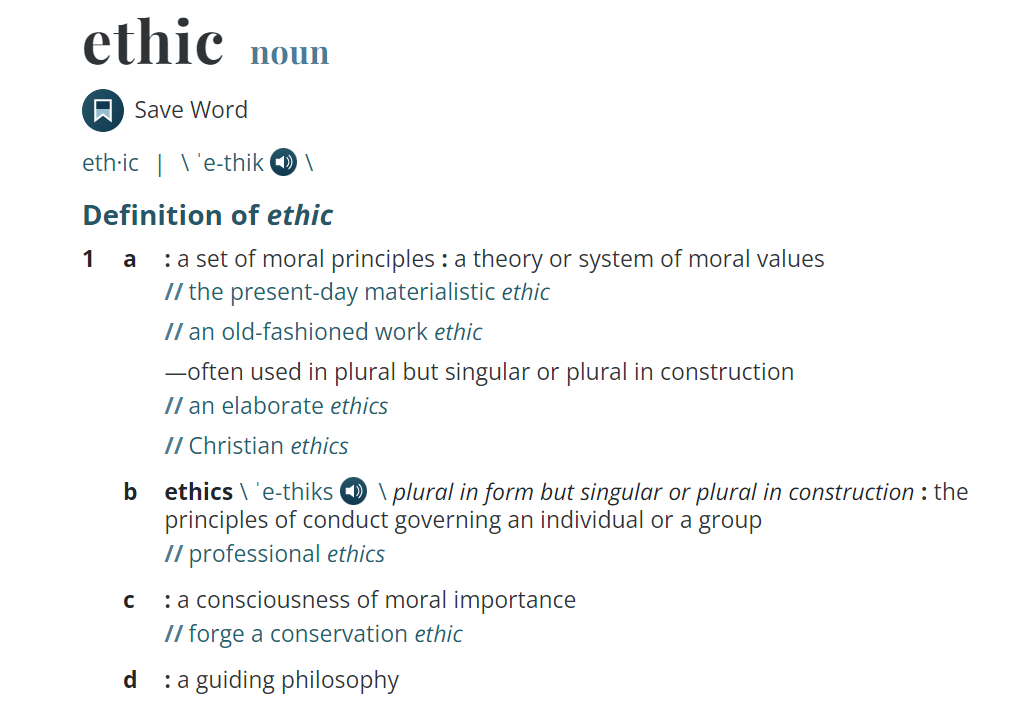As a tutor, knowing your industry’s code of professional ethics is important. Tutoring can help students achieve their academic goals, but it is also important to remember that certain rules of tutoring ethics must apply. Besides, private tutoring businesses have a separate code their employees should follow. What are the main do’s and don’ts? Let’s find the answer together!
Ethics: a General Introduction
According to Merriam-Webster, the term “ethic” implies “a set of moral principles: a theory or system of moral values.” In the professional setting, ethics usually refers to a set of rules that are obligatory for all members of a specific profession.

For example, the code of ethics for an eCommerce company includes niche-specific values and norms all employees must respect. eCommerce ethics empowers businesses with benefits like better customer satisfaction rates, more advanced business opportunities, and enhanced sales. At the same time, a broader code of ethics applicable for all businesses also applies. The latter contains values like honesty, trustworthiness, and confidentiality.
As you can see, business ethics is a broad term that governs human interaction in a professional setting. Here, we will focus on the ethics of private tutoring businesses, their employees and tutors in general.
The Core Rules of Tutoring Ethics Every Professional Should Know
Codes of ethics help determine what tutors can and cannot do while working with their students. Several major institutions and NGOs publish codes of tutoring ethics to be followed by every specialist.
Two of the top institutions are the National Tutoring Association (NTA) and the Tutor’s Association.
What does it take to become a professional and well-trusted tutor in 2022? Let’s go through the main rules introduced by each association.
Tutoring Ethics for Private Tutors

If you are a private tutor working for an agency, the rules of ethics you should follow are largely determined by your employer.
The code of ethics for tutors includes punctuality and adequate preparation for each lesson, respect for students and their parents, and respect for confidentiality. In other words, ethics for tutors is more or less the same as ethics for any other professional.
Let’s look at the general rules of ethics for tutoring in more detail.
Punctuality and Preparation
This one is self-explanatory – being on time and adequately prepared for the class is a must for any tutor. If you are working with an agency, they will most likely have strict rules about this point.
Private tutors should be twice as attentive toward these rules because they take full responsibility and risk losing the client if they are not punctual or well-prepared for a class.
Respect
Always respect your students, their parents and guardians. This includes being polite and using appropriate language.
Tutors should always remember that each student is unique and has different learning abilities, needs and goals. Therefore, they should never use offensive language or make personal comments about their students. By respecting your students, you establish yourself as a trustworthy authority.
Confidentiality
Tutoring, as in any other business, has its secrets, and every student has the right to privacy. What a tutor learns about their student during the lesson should never be shared with anyone unless it’s directly related to the tutoring process.
For example, if a tutor suspects that their student might have some learning disabilities, they should never share this information with anyone without the student’s or their parents’ consent.
Let’s now see what rules are specific to the tutoring industry.
Tutoring-Specific Ethics

Even though the rules of ethics for tutors are about the same as for any other professional, there are still some points to consider.
Parents’ Expectations
In most cases, parents are the ones who hire tutors for their children. Therefore, it is only natural that they have high expectations for the tutor’s work.
It’s a tutor’s duty to meet these expectations. Failing to do so can result in losing the client.
Tutoring Methodology
When it comes to the tutoring process itself, tutors should always use methods that are backed by scientific research. There are countless resources and teaching approaches, and not all are effective. It’s a tutor’s responsibility to only use approaches that are proven to be efficient.
According to the code of tutoring ethics, educators should stay up-to-date with the latest innovations and advanced teaching tools. This implies attending educational conferences and workshops, reading professional literature, and using tools like collaborative whiteboards to make your lessons interactive and even more engaging.
As you can see, ethics for tutors is not that different from ethics for any other business. The main difference is that tutoring is a very personal process where the tutor has a lot of influence on the student.
Quality Education
Students have the right to quality education. To that end, a tutor must be ready to provide students with all the necessary materials and resources for successful learning. If you use online platforms or apps to teach, it’s your responsibility to provide each student with access to digital learning resources.
The same applies to the physical materials tutors use during the lessons. If you are teaching a language, your students should have access to relevant resources such as textbooks, movies, and literature.
Ethics of Private Tutoring Businesses
Rules for private tutoring businesses are not that different from general ethics for tutors. The main difference is that private tutoring businesses must follow strict rules because governments usually monitor them.
Some of the most important rules private tutoring businesses have to follow are:
- Only hire qualified and experienced tutors
- Provide tutors with all the necessary materials and resources
- Respect each employee’s and client’s cultural, individual and role differences (based on age, sex, gender, identity, race, disability, etc.)
The code of ethics for private tutoring businesses is not that different from general ethics for tutors. However, businesses have to follow a few more administrative and organizational rules.
All in all, ethics for tutors is not that different from ethics for any other business. As educators, tutors should always be professional and respectful towards their students!


